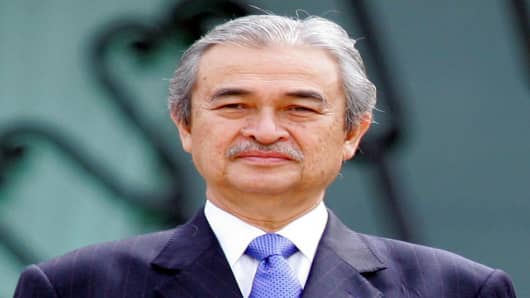Malaysian Prime Minister Abdullah Ahmad Badawi, trying to assuage anger over the steepest hike in fuel prices in years, said on Monday the administration will announce more measures to ease the burden on consumers.
Abdullah, already fighting a challenge to his leadership following a poor showing in a general election in March, said the fuel hike decision was a difficult one to make, but there had not been a choice.
Petrol prices were increased by 41 percent and diesel 63 percent in line with a global surge in oil prices, a measure which would drive inflation to a 10-year high of 4.2 percent in 2008.
"In all honesty, it was a difficult and agonizing decision to make. Many times, we have been tempted to walk away from such a difficult decision," Abdullah told an energy conference.
He said that the administration planned to announce more measures to lessen the pain for ordinary people after a meeting of the cabinet's anti-inflation unit.
State media reported last week that the government planned measures such as widening the social safety net for the poor, increasing the number of price-controlled items and improving public transport.
Many consumers grumble that they have to face a steep rise in prices despite the fact that Malaysia, Asia's largest net oil exporter, earns 250 million ringgit ($76.8 million) a year in revenue for every $1 rise in crude prices.
"Simple logic: As an exporter of fuel, how can fuel price increase hurt us? Why, why?" read a post on a popular blog rockbru, among the several whereMalaysians have been venting their anger against the government.
Hefty Subsidies
Analysts said the fuel price hike would rescue government finances, which have been weighed down by hefty energy subsidies as crude prices soar, but would also help an opposition campaign to topple Abdullah.
On Sunday, opposition figurehead Anwar Ibrahim seized on the fuel hikes, addressing one of the biggest meetings yet to drum up support against the Barisan Nasional coalition which has ruled Malaysia since independence from Britain in 1957.
"Politically, the message was clear on 8th of March, economically it's now a disaster. That is why we are calling on them to resign," Anwar said.
He said the plan for a change in government was on track as more members from the ruling coalition were drawn to his group, angry over what he said was the "highest single increase" in fuel prices around the world.
But he didn't give any details and analysts say that Anwar, who was cast into the political wilderness after being dumped in 1998 by his former mentor, ex-Prime Minister Mahathir Mohamad, has repeatedly made assertions without showing any evidence.
The government says it will save 13.7 billion ringgit ($4.23 billion) as part of a broad overhaul of its heavily subsided energy pricing system.
Pump prices for petrol in Malaysia are still among the cheapest in Asia.


